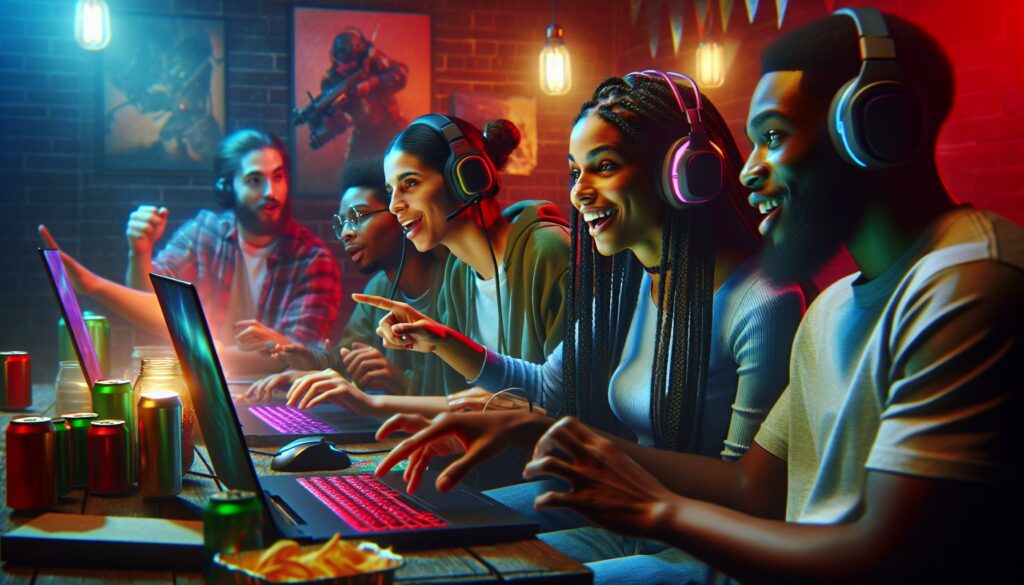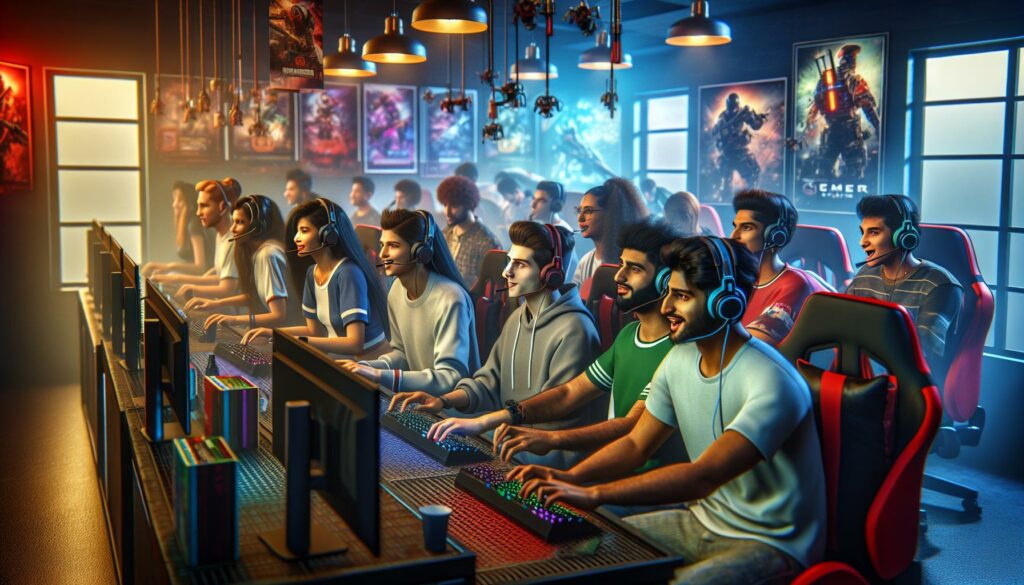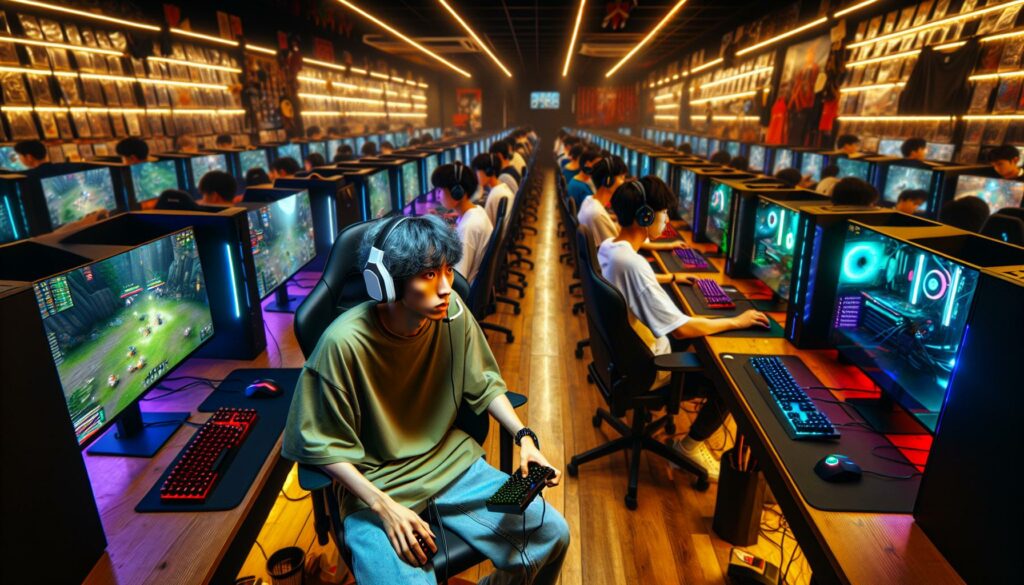Gaming culture has evolved far beyond the confines of basements and arcade halls into a thriving digital ecosystem. Whether you’re a casual mobile gamer or a hardcore esports enthusiast there’s a virtual community waiting to welcome you. Gaming culture websites serve as digital hubs where millions of players connect share experiences and stay updated on the latest industry trends.
From in-depth game reviews to breaking news about upcoming releases these platforms have become essential resources for the modern gamer. They’re not just about gaming news anymore – they’ve transformed into cultural epicenters where streamers developers and fans converge to shape the future of interactive entertainment. Today’s gaming websites offer everything from strategy guides and player forums to professional tournament coverage and exclusive developer interviews.
Gaming Culture Websites
Gaming culture websites emerged in 1996 with GameSpot pioneering digital game journalism. IGN followed in 1997, establishing comprehensive coverage formats for reviews, previews, and news articles.
The early 2000s introduced dedicated gaming forums like NeoGAF and GameFAQs, connecting players through discussion boards and strategy guides. Community-driven platforms Reddit’s r/gaming and ResetEra launched in 2005 and 2017, expanding gaming conversations to broader audiences.
| Era | Key Developments | Notable Platforms |
|---|---|---|
| 1996-2000 | Game reviews, news | GameSpot, IGN |
| 2001-2010 | Forums, guides | NeoGAF, GameFAQs |
| 2011-Present | Social integration, streaming | Reddit, Twitch |
Content creation platforms transformed gaming websites in 2011 through video integration. Polygon launched in 2012, introducing long-form journalism and cultural commentary to gaming coverage. Streaming platform Twitch.tv integrated with gaming websites in 2014, adding live content to traditional articles.
Modern gaming websites incorporate social features, user-generated content and multimedia elements. Destructoid, Eurogamer and Rock Paper Shotgun specialize in specific gaming niches, offering targeted content for distinct player communities. Gaming journalism evolved from basic review scores to analytical pieces examining industry trends, cultural impact and technological innovations.
Mobile optimization became standard for gaming websites in 2015, enabling access across devices. Professional esports coverage expanded in 2016, with dedicated sections on major gaming platforms. Discord integration appeared in 2017, connecting website communities through real-time chat features.
Most Influential Gaming News Platforms
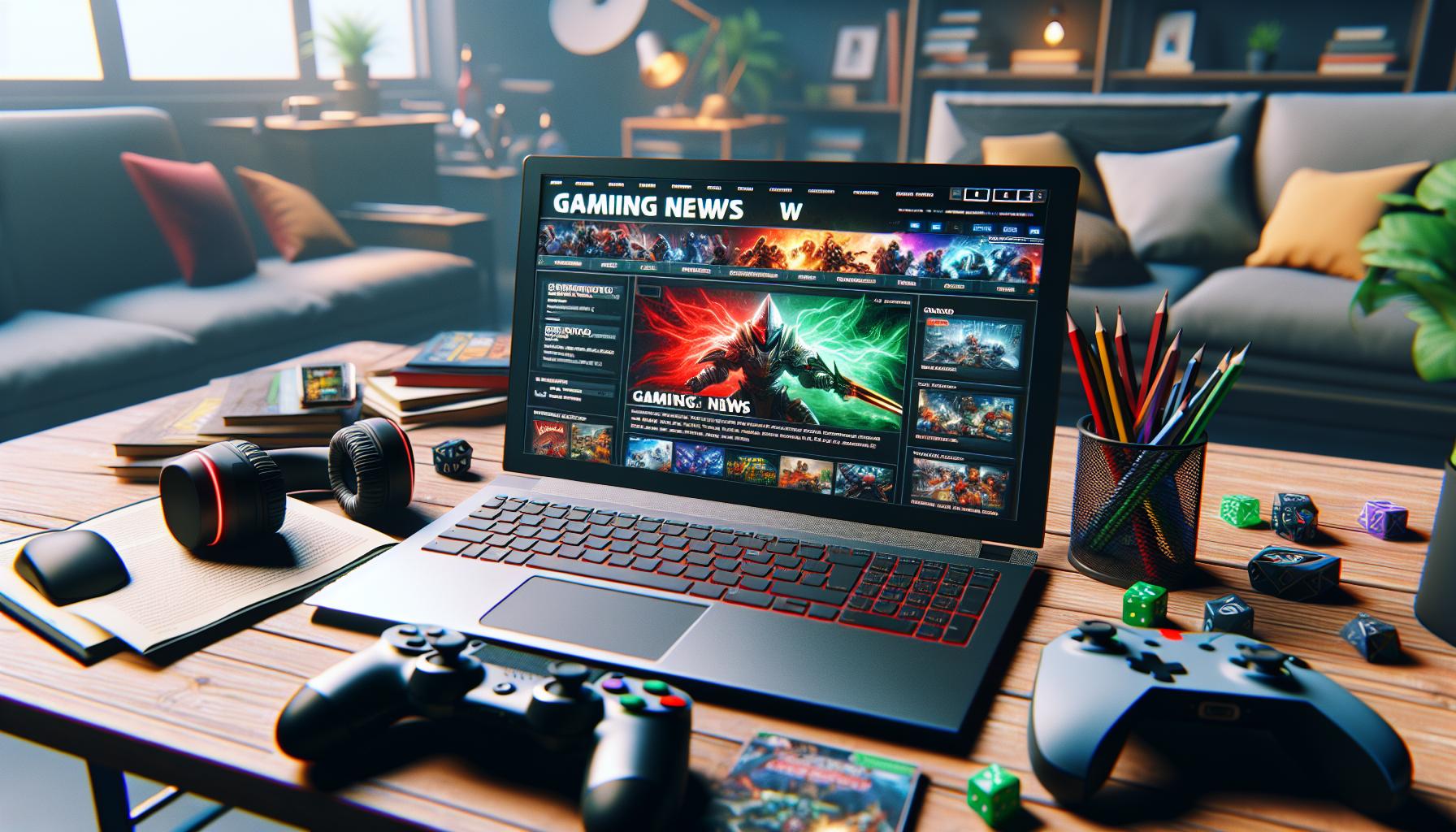
Gaming news platforms shape industry trends through comprehensive coverage ranging from breaking news to in-depth analysis. These digital powerhouses reach millions of monthly active users across multiple channels.
IGN and GameSpot’s Impact
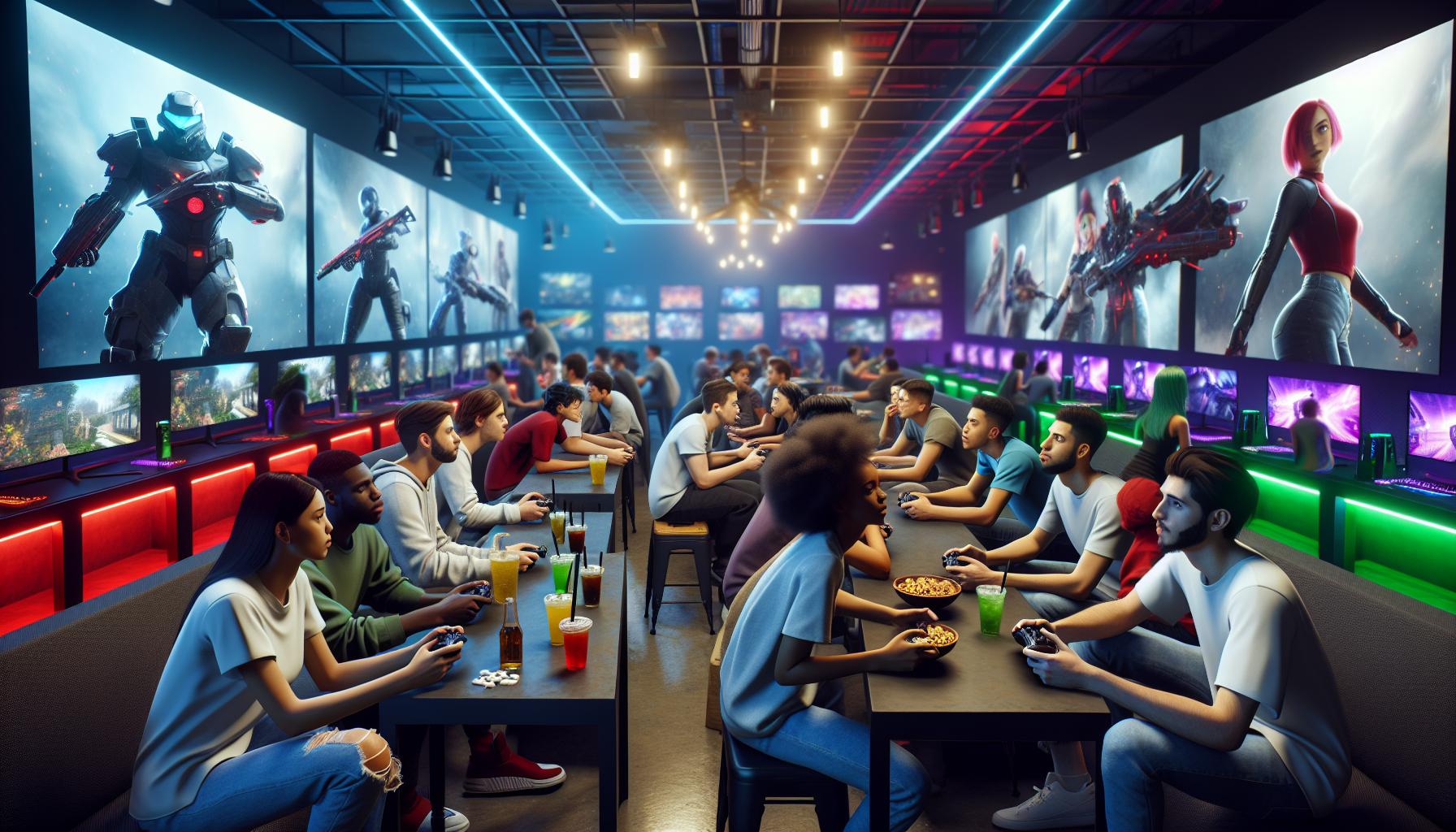 IGN attracts 50 million monthly visitors through its multimedia approach to gaming coverage. The platform combines video reviews with written content to deliver comprehensive game analyses across PC, console, and mobile platforms. IGN’s review scoring system influences purchasing decisions for 68% of active gamers according to Nielsen Gaming Research 2022.
IGN attracts 50 million monthly visitors through its multimedia approach to gaming coverage. The platform combines video reviews with written content to deliver comprehensive game analyses across PC, console, and mobile platforms. IGN’s review scoring system influences purchasing decisions for 68% of active gamers according to Nielsen Gaming Research 2022.
GameSpot maintains its position as a trusted source for technical game analysis with 30 million monthly readers. The platform pioneered standardized review methodologies in 1996 that remain industry benchmarks today. GameSpot’s detailed technical breakdowns include frame rate analysis, performance metrics, and platform comparisons that inform both consumers and developers.
Polygon and Kotaku’s Fresh Perspectives
Polygon reaches 25 million readers monthly through its focus on gaming culture and industry analysis. The platform’s long-form features examine gaming’s societal impact, developer working conditions, and emerging industry trends. Polygon’s investigative reporting has earned recognition from the Society of Professional Journalists.
Kotaku differentiates itself through insider industry coverage and cultural commentary reaching 20 million monthly readers. The platform breaks major industry stories including studio closures, workplace conditions, and development challenges. Kotaku’s coverage extends beyond games to include anime, cosplay, and gaming community events that connect with broader pop culture interests.
Community-Driven Gaming Websites
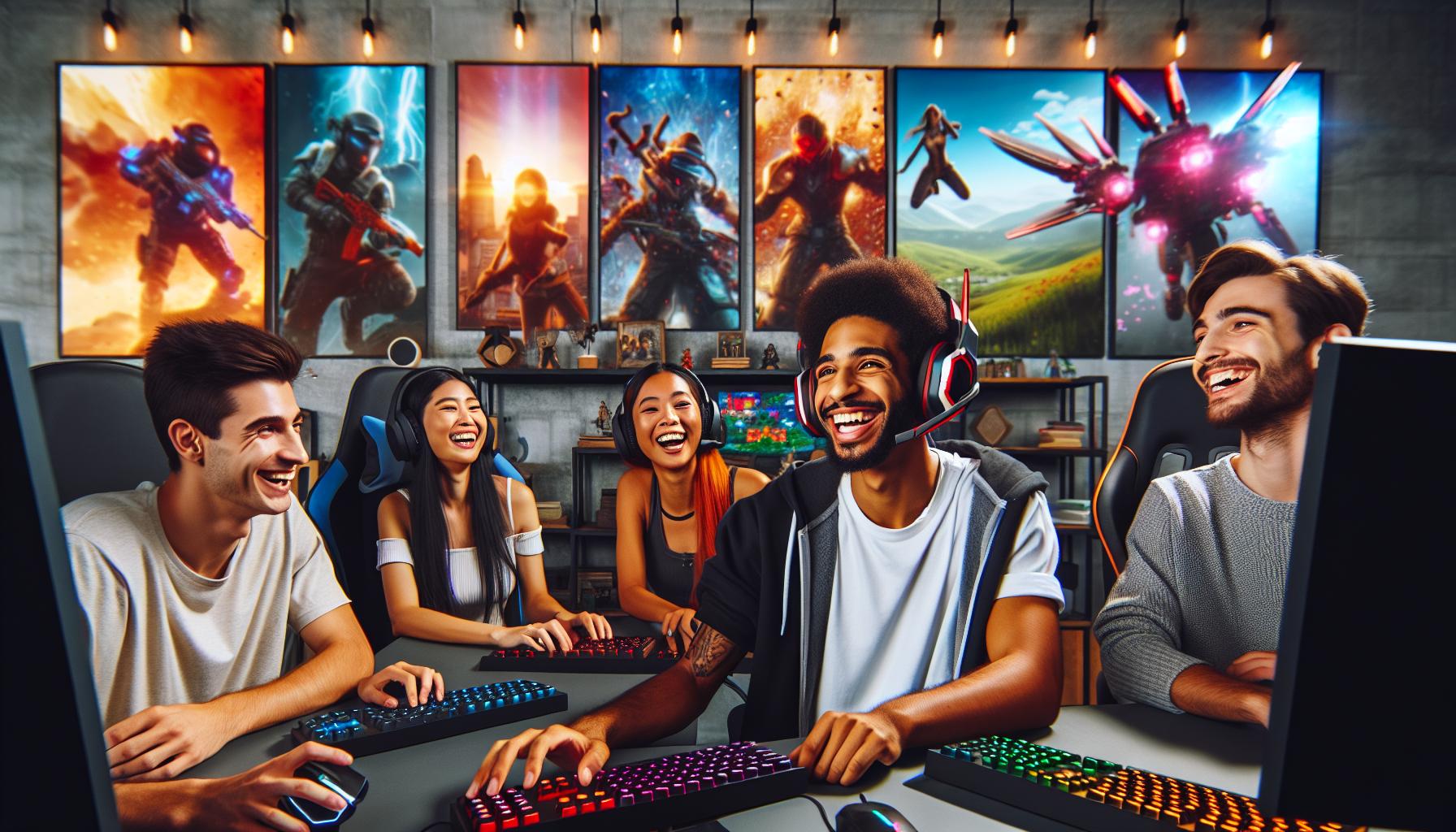
Community-driven gaming websites create spaces for players to share experiences, strategies, and insights through collaborative platforms. These digital gathering places enable real-time discussions and foster lasting connections between gaming enthusiasts.
Reddit Gaming Communities
 Reddit hosts specialized gaming communities with distinct focuses and engagement patterns. r/gaming, the platform’s largest gaming subreddit, connects 34 million members through memes, screenshots, and discussions. r/Games emphasizes in-depth industry analysis with 3.5 million subscribers participating in curated conversations. Specialized subreddits like r/patientgamers target specific audiences, such as players who wait for game price drops or patches before purchasing. Game-specific communities generate 250,000+ daily discussions about updates, strategies, and fan content. Active moderation teams enforce content guidelines to maintain quality discussions across these communities.
Reddit hosts specialized gaming communities with distinct focuses and engagement patterns. r/gaming, the platform’s largest gaming subreddit, connects 34 million members through memes, screenshots, and discussions. r/Games emphasizes in-depth industry analysis with 3.5 million subscribers participating in curated conversations. Specialized subreddits like r/patientgamers target specific audiences, such as players who wait for game price drops or patches before purchasing. Game-specific communities generate 250,000+ daily discussions about updates, strategies, and fan content. Active moderation teams enforce content guidelines to maintain quality discussions across these communities.
Gaming Forums and Message Boards
Gaming forums serve as dedicated spaces for extended gaming discussions and knowledge sharing. ResetEra attracts 150,000 registered users who generate 12,000 daily posts about industry news and gaming culture. NeoGAF maintains 90,000 active participants focusing on technical analysis and gaming preservation. GameFAQs hosts 2 million user-submitted guides that document game mechanics and solutions. Steam’s community forums integrate 28 million concurrent users with direct game developer interaction. These platforms feature organized subforums for specific genres, franchises, and platforms, enabling focused discussions among enthusiast groups.
Gaming Culture Content Creators
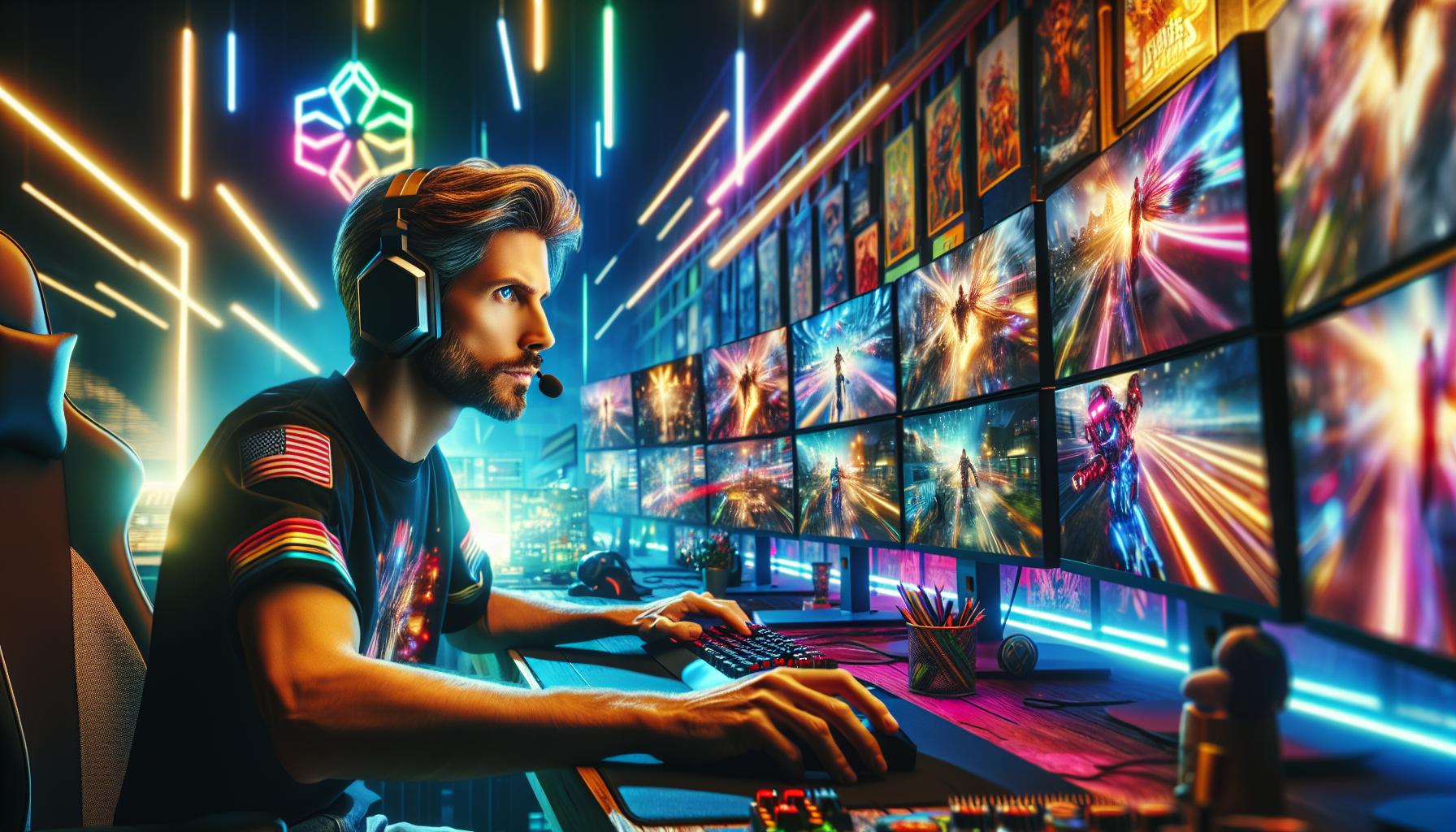
Gaming content creators shape public opinion through specialized coverage of video games across multiple platforms. Their influence extends from traditional reviews to comprehensive cultural analysis of the gaming industry.
Game Critics and Reviewers
 Professional game critics deliver in-depth analysis through structured review formats on platforms like IGN, GameSpot and Polygon. Leading critics like Jeff Gerstmann reaches 500,000 viewers monthly through video reviews focusing on gameplay mechanics technical performance. Jason Schreier’s investigative journalism exposes industry practices garnering 250,000 social media engagements per article. Critics utilize standardized scoring systems measuring graphics, sound, gameplay and narrative elements, providing quantifiable metrics for game quality. Popular YouTube reviewers such as SkillUp and ACG maintain 1+ million subscribers each by offering detailed technical analysis format reviews incorporating frame rate tests resolution comparisons.
Professional game critics deliver in-depth analysis through structured review formats on platforms like IGN, GameSpot and Polygon. Leading critics like Jeff Gerstmann reaches 500,000 viewers monthly through video reviews focusing on gameplay mechanics technical performance. Jason Schreier’s investigative journalism exposes industry practices garnering 250,000 social media engagements per article. Critics utilize standardized scoring systems measuring graphics, sound, gameplay and narrative elements, providing quantifiable metrics for game quality. Popular YouTube reviewers such as SkillUp and ACG maintain 1+ million subscribers each by offering detailed technical analysis format reviews incorporating frame rate tests resolution comparisons.
Gaming Lifestyle Coverage
Gaming lifestyle creators document gaming culture through vlogs, podcasts and feature articles focused on the community experience. Streamers like Ninja and Pokimane attract 15+ million followers by combining gameplay with personality-driven entertainment. Gaming podcasts such as Giant Bombcast average 500,000 weekly downloads featuring industry discussions news updates. Content series like NoClip produces gaming documentaries gathering 2+ million views per episode exploring development stories. Gaming photographers capture esports events convention coverage reaching 100,000+ Instagram followers. Cultural commentators analyze gaming’s societal impact through editorial features on platforms like Vice Gaming Waypoint generating 300,000 monthly readers.
The Future of Gaming Media
Artificial intelligence integration transforms gaming media platforms through personalized content recommendations based on individual player preferences. Gaming websites incorporate machine learning algorithms to analyze user behavior patterns, delivering tailored news feeds, game suggestions, and community connections.
Virtual reality expands content creation possibilities as gaming media platforms adapt to immersive technologies. Major websites like IGN and GameSpot now feature dedicated VR sections, offering 360-degree game footage and interactive virtual tours of gaming environments.
Cross-platform integration emerges as gaming media websites sync with mobile apps, social networks, and streaming services. Modern platforms leverage API connections to aggregate content from multiple sources, creating seamless experiences across devices.
Blockchain technology enables new monetization models for gaming content creators through NFTs and digital collectibles. Content platforms experiment with token-based rewards systems, allowing readers to earn cryptocurrency for contributions and engagement.
| Emerging Gaming Media Trends | Adoption Rate | Expected Growth |
|---|---|---|
| AI Content Personalization | 45% | +65% by 2025 |
| VR/AR Integration | 28% | +85% by 2025 |
| Blockchain Solutions | 15% | +120% by 2025 |
| Cross-platform Features | 72% | +40% by 2025 |
Interactive journalism redefines gaming media through real-time reporting and community-driven content creation. Live coverage incorporates audience feedback, polls, and collaborative storytelling elements that blur the lines between creators and consumers.
Data-driven analytics shape editorial decisions as gaming websites utilize advanced metrics to understand audience preferences. Traffic patterns, engagement rates, and user behavior data inform content strategies, ensuring platforms remain relevant to evolving gaming communities.
Shaping Modern Gaming
Gaming culture websites have transformed from simple review platforms into dynamic digital ecosystems that shape the gaming industry’s future. These platforms now serve as vital hubs where millions of gamers connect share experiences and influence gaming trends through diverse content formats.
The evolution of gaming media continues to accelerate with emerging technologies like AI VR and blockchain reshaping how content is created and consumed. As gaming communities grow more interconnected these platforms will play an increasingly crucial role in defining gaming culture and driving industry innovation.
The future of gaming websites looks promising as they adapt to new technologies while maintaining their core mission: bringing gamers together and enriching the gaming experience for everyone.

